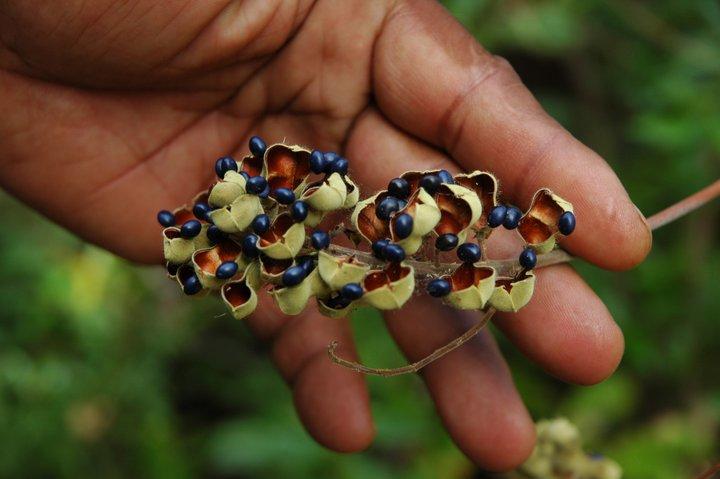Mutually implementing the Nagoya Protocol and the Plant Treaty in Madagascar

A Darwin Initiative funded project coordinated by Bioversity International in Madagascar and Benin has communities devising personalized investment plans, ranging from medicinal plant botanical gardens to sustainable tourism.
Bioversity International and the Darwin Initiative came together to support the development of policies and mechanisms to mutually implement the Nagoya Protocol and the Plant Treaty, linking national and community levels. A Madagascan community comes up with an investment plan involving the promotion of sustainable tourism.
The 3-year initiative started in 2015 with the objective of promoting the mutual implementation of the Nagoya Protocol and Plant Treaty – two different international agreements on how countries exchange plant genetic resources – in a way that responds to local realities and contributes to development benefits. Funded by the Darwin Initiative and coordinated by Bioversity International, the aim is to support two communities in Benin and Madagascar to develop community biodiversity registries, access and benefit-sharing protocols, and conservation and sustainable use investment plans. The development of investment plans is meant to encourage the communities to use what is available to them locally to promote conservation and opportunities for community well-being in the future.
Among the various community investment plans, such as the implementation of community seedbanks, or the establishment of a botanical garden of medicinal plants, a Madagascan community stood out with the idea to promote sustainable tourism. The hope is that sustainable tourism has the potential to increase sources of income of the community while conserving natural resources and maintaining local cultures.
The site identified for the development of sustainable tourism is located in Antavolobe, 150km east of Madagascar’s capital Antananarivo. Antavolobe forms part of the Ankeniheny Zahamena Forest Corridor. It is one of the largest vestiges of the dense, evergreen moist forest of eastern Madagascar and is of major biological importance and boasts rich biodiversity, with various species of birds, amphibians, reptiles and lemurs. It also contains more than 250 species of plants, 34% of which are endemic.
This isn’t the first attempt at developing sustainable tourism in the area. In the past, 400ha of forest were delineated, some touristic routes were traced and developed, and an interpretation centre was built with the support of the government's Environmental Program. However, the site is still quite unknown. Ana Bedmar Villanueva, one of Bioversity International’s researchers behind the project, recognized the idea as an example of the project’s overall success. “The communities came together and engaged in active, educated and fruitful discussions. They brought up the existence of unutilized infrastructure for sustainable tourism and recognized that as an excellent opportunity to continue working as a community beyond the scope of our project,” said Bedmar Villanueva, adding: “The project is in reality very short, thus the main idea behind it is to actually empower communities to tackle complex issues in the future by themselves.”
A key characteristic of the initiative is that its implementation involves constant collaboration between each country’s focal points of the Nagoya Protocol and Plant Treaty, which would constitute the base of future collaborations between the them in order to implement the two international agreements as complementary. One outcome of these collaborations at the national level was that both country teams successfully developed ministerial decrees to implement the Nagoya Protocol and Plant Treaty in a mutually supportive manner, and the focal points and lawmakers obtained numerous beneficial contacts and connections in regards to agrobiodiversity and sustainability.
This article was adapted from Darwin Initiative’s June 2017 Newsletter.
Read more about the initiative's earlier stages here.
Contact Project Researcher Ana Bedmar Villanueva.
Partners
This project is conducted with the support of The Darwin Initiative - a UK Government Funded Programme. It is carried out in collaboration with the ABS Capacity Development Initiative, the Secretariats of the Convention on Biological Diversity, the International Treaty on Plant Genetic Resources for Food and Agriculture and the African Union Commission.
This research is part of the CGIAR Research Programme on Climate Change, Agriculture and Food Security and is supported by CGIAR Fund Donors.
Photo: Sustainable tourism can increase incomes while conserving natural resources. Credit: Bioversity International/D.Hunter
